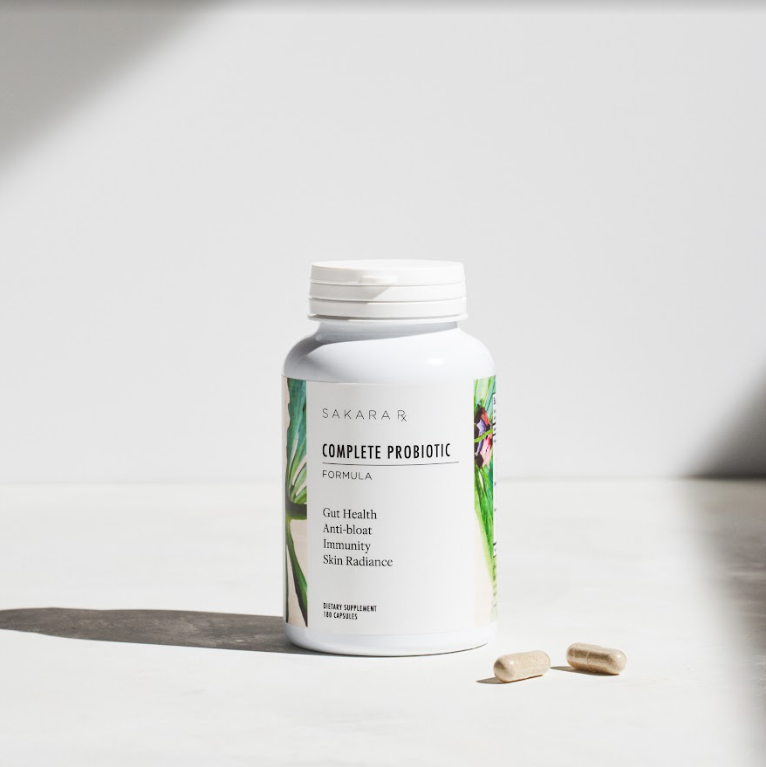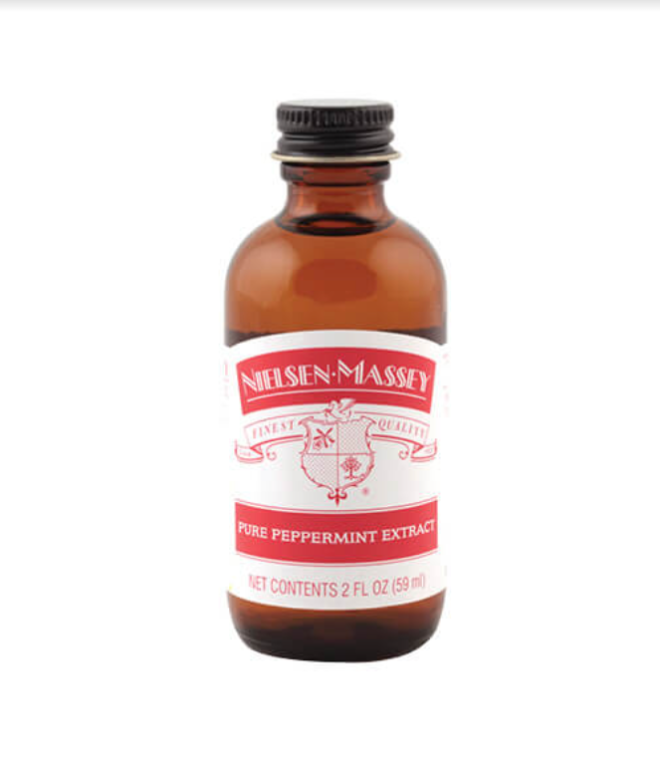It’s 2022, and we’re saying a hard no to bloating of any kind! Vitamins and supplements for bloating can make a significant difference in the body’s tendency toward gradual expansion, and we’ve got all the information you need.
In this article we discuss the following:
- What Vitamin Deficiency Causes Stomach Bloating?
- Supplements for Bloating
- Vitamins for Bloating
- Best Vitamins and Supplements for Bloating
- Vitamins and Supplements for Bloating at Walmart
What Vitamin Deficiency Causes Stomach Bloating?
Consistent, repetitive spells of bloating can be a sign that something within your body’s nutrient system is significantly deficient. This is not the only trigger, of course, as bloating is generally a physiological response to specific happenings within the internal system. So, while one can absolutely take vitamins for digestion and bloating, it doesn’t always mean that one’s bloating is specifically linked to an imbalance per se.
Vitamin D deficiencies have been most commonly linked to the phenomenon of bloating, as well as vitamin B12. That said, sometimes people who suffer from excessive bloating are not necessarily deficient in these areas but can take the supplements anyway to help ease symptoms.
Emily Alexander (M.ED, FNTP), from Curated Wellness, gave us some further insight into this notion. “Bloating is a physiological response that can be the result of many different underlying dysfunctions, which means that the best way to address this symptom often varies from person to person. However, there are some vitamins and supplements that may be beneficial for a majority of people.”
Supplements for Bloating
To better understand why one should consider turning to supplements for bloating and gas, we spoke with Dr. Ray Wisniewski, CEO and founder of Weight Loss Direct. “One of the best ways to combat bloat and improve gut health overall is through a healthy gut microbiome. When feeling bloated, oftentimes it’s due to a poor diet high in refined sugars and processed foods and this is “feeding” the bad bacteria causing more bloat and more gut problems.”
Dr. Wisniewski says that you can easily get back on track by incorporating probiotic supplementation into the diet which will help to counteract and balance out the negative effects of bad gut bacteria. This is where digestive supplements bloating comes into play!
Herbal Supplements for Bloating
Herbal remedies make for some of the best anti-bloating supplements. The ancient use of plants and herbs as medicine has survived through to the 21st century for good reason: they work, and there is still a lot that we don’t know about what Mother Earth’s medicine cabinet has to offer.
Peppermint teas, coriander seeds, ground fennel, fresh turmeric… all of these herbs offer potential solutions for incessant bloating. Essentially, they are offering the body beneficial food-enzymes that counter bloating naturally, which also means there are certain foods with enzymes that should be avoided.
Dr. Lawrence Hoberman is a board-certified gastroenterologist and gut health expert, so he is our go-to when it comes to anything gut related. “Up to 30 percent of healthy people experience intermittent abdominal bloating, which can be unpleasant but not life-threatening. Bloating is generally attributed to a build-up of excess intestinal gas.”
Dr. Hoberman acknowledges suggestions of eating slower and avoiding chewing gum and carbonated beverages can help some cases of bloating. “However, the most common cause is a lack of certain intestinal enzymes that can break down carbohydrates like lactose in dairy products and fructose in fruits. Eliminating these food products can be very beneficial for people lacking the appropriate intestinal enzymes.”

Powder Supplements for Bloating
For some people a powder supplement is just preferable. People who like to start their day with protein shakes or fresh smoothies tend to find that powder supplements are easier to incorporate into their daily routine compared to swallowing pills or sipping tea.
Emily, who we heard from earlier, adds that because bloating is often associated with low levels of stomach acid and digestive enzyme release, supplementing with digestive bitters or low dose digestive enzymes can be a great place to start. “Finding a probiotic supplement that includes both prebiotic fibers and probiotics can be a great way to address bloating as it balances out the microbiome bacteria and may help to crowd out the unbalanced bacteria contributing to bloating.”
Some of the best gastric support supplements on the current market come in powder form.
Supplement Pills for Bloating
Believe it or not, popping pills happens to be one of the best variants of supplements for constipation and bloating. Though this may not be everyone’s cup of tea, capsule supplements deliver the nutrients right to the source, giving the body little to no say in whether to absorb them or not.
Sometimes bloating isn’t directly related to a nutrient deficiency at all, but rather a simple case of Irritable Bowel Syndrome. The other major issue is Irritable Bowel Syndrome (IBS) manifested by gas, bloating, diarrhea, and constipation. For many individuals with IBS, their intestinal microbiome or bacteria may be out of balance with more harmful bacteria than good bacteria. This is called dysbiosis and leads to the symptoms of IBS. “Adding a good probiotic with a prebiotic (in capsule or powder form) can rebalance the microbiome and alleviate the symptoms of IBS,” says Dr. Hoberman.
Natural Supplements for Bloating
When we refer to natural supplements for gas and bloating, what exactly do we mean? Aren’t all supplements “natural” to a degree? Yes and no. This is tricky territory, since one can argue that anything supplemented needs to originate from a natural source to start with.
Natural supplements are any nutrient that already exists within the body (and is simply sometimes lacking), or anything derived from natural sources (plants, herbs, animals). In essence, man is not involved in the existence of this substance — it exists in spite of man.
Anything we include in this article is going to be natural in nature, as this is not a space in which we explore how to treat bloating with Western medicine. This is where we honor natural alternatives and homeopathic-type treatments for the purpose of attaining wellbeing over time.
Vitamins for Bloating
All vitamins can be supplements, but not all supplements can be vitamins. This is a helpful way to think about the difference between what is meant by these two terms. For the most part, they are interchangeable, but while you may supplement a variety of vitamins, there are certain nutrients that fall outside of the vitamin bracket that, too, can be turned into supplement form.
For example, Dr. Wisniewski points out how potassium can be instrumental in managing one’s bloat levels, but this would fall under general supplements and not necessarily vitamins. “Potassium is another great debloating nutrient due to the simple fact that the typical Western Diet is filled with excess sodium. Excess sodium makes our bodies retain water in order to dilute the build-up of sodium and this then causes water retention and bloating. Potassium counteracts high sodium levels by ridding the body of excess sodium and therefore excess water through the kidneys and in the urine,” says Wisniewski.
There is many-a-vitamin for bloating and water retention, and the internet is filled with individuals on the hunt for that perfect mix of vitamins to reduce bloating and its side effects. We’re going to take a closer look at a few of them:
Vitamin C for Bloating
The big C is a vitamin that comes up time and time again across most wellness debates, and it has proved to be beneficial for everything from treating hair loss to aging. No surprises then that we find ourselves taking a closer look at this vitamin under the bloating and constipation lens.
Interestingly, there aren’t a lot of studies that suggest that vitamin C is a good thing to supplement for the treatment of bloating. On the contrary, too much vitamin C can actually induce both bloating and diarrhea, as the gut’s natural response is to flush it out as quickly as possible. This condition is known as vitamin C gas bloating or vitamin C flush bloating. Excess vitamin C has also been known to cause cramps and even vomiting (if persistent).
Vitamin D3 for Bloating
One area where people are usually deficient, with symptoms of bloating, is a lack of vitamin D. This is one of the best vitamins for less bloating, and supplementing consistently can prove wonderful results for anyone who has yet to find a solution.
Vitamin D3 has the ability to regulate gastrointestinal inflammation, but it seems this benefit is only available to individuals who are actually deficient to some degree. Those who aren’t, could find that consuming additional vitamin D leads to bloating.
For this reason, it’s pretty important to take yourself to your nearest blood testing station and get a reading on your general vitamin D levels. If you fall within the normal bracket, then supplementing vitamin D3 is probably only going to make your condition worse.
Vitamin B6 for Bloating
Something to keep in mind on your journey toward a bloat-free life, is that there are actually different types of bloating that occur within the human body. Some forms of bloating are on account of fluid retention, while others are due to gas build up; inflammation of the gut can also lead to symptoms of bloating.
So then, does vitamin B6 help with bloating? The answer is yes, provided your bloat is due to fluid retention and not due to gas. Vitamin B6 can do nothing to help the latter, but in cases where fluids are simply struggling to leave the body, this nutrient can help settle things.
Fluid retention bloating is common during menstruation. On this note, vitamin B6 has been said to help with a range of PMS related symptoms, including irritability, forgetfulness, and anxiety.
Zinc for Bloating
Zinc is a nutrient that came up whilst speaking with Emily Alexander, who we referenced earlier on in this piece. “Zinc deficiency may contribute to inadequate production of stomach
acid, and supplementing with a good quality zinc supplement can support the body in restoring stomach acid levels.”
So when the question of ‘does zinc help with gas and bloating?’ is posed, the answer is it can, but not always. Zinc can only help if, like Emily says, one is currently deficient and that specific deficiency is causing an imbalance in existing stomach acid. In this instance, a zinc supplement could be wonderfully beneficial in rectifying any bloating effects.
Vitamin D for Bloating?
Before we take a second glance at this, we’d like to share some words of author Dan LeMoine, found in his bestselling book Fear No Food, as he points us toward some of the best vitamins to reduce bloating.
“As we age we begin losing digestive enzymes, which help us digest, absorb, and metabolize the nutrients in our food. Different enzymes are used to break down food you eat so your body can get the nutrition it needs. While there are many digestive enzymes, here are the main ones you’ll want to make sure your supplement includes: lipase (breaks down fats), protease (breaks down proteins), amylase (breaks down carbohydrates), and lactase (breaks down the sugars in dairy),” says Dan.
“Not having the needed digestive enzymes (due to age, poor diet, or different medications you’re taking, etc), you will not be able to process foods to get all the nutrients they provide. Instead, what happens is that many people suffer upset stomachs, gas and bloating, irritable bowels, and other intestinal distress, which is why a high quality digestive enzyme supplement can be a huge help.”
That said, can vitamin D help with bloating? As we mentioned above, vitamin D can do wonders for a bloated gut, especially one that is struggling in necessary digestive enzyme levels, however it can only help if the individual in question is deficient in vitamin D to begin with. If not, taking any form of vitamin D, including D3, can lead to further gastrointestinal problems and even more severe symptoms of bloating.
Best Vitamins and Supplements for Bloating
Best Probiotic Supplement for Bloating
Sakara Complete Probiotic Formula

When searching far and wide for effective vitamins that help with bloating, Sakara’s probiotic supplement came up time and time again. The formulation of this product had bloating in mind from the start, in addition to support for digestion, immunity and skin.
Each capsule contains an impressive 3 billion CFUs made up of 11 probiotic strains, digestive enzymes, systemic enzymes and prebiotic fibers. The potency of these capsules speaks for themselves, and there is a reason that everyone who buys from Sakara becomes a return customer.
Remember earlier when Emily mentioned how finding a probiotic supplement that includes both prebiotic fibers and probiotics can be a great way to address bloating? Sakara’s formula does the job, as it balances out the microbiome bacteria and may help to crowd out the unbalanced bacteria contributing to bloating thanks to the probiotic meets prebiotic combination.
Best Natural Supplement for Bloating
Nielsen Massey Pure Peppermint Extract

Peppermint oil is nature’s medicine and is considered to be one of the most powerful antispasmodics on the planet. When consumed in high enough concentrates, peppermint oil supplements can relieve stomach cramps, bloating, and excessive flatulence.
This is a great supplement for the gas-type of bloating, and not so much for the fluid build up-type. What we love about this pure peppermint extract by Nielsen Massey, is that it wasn’t made with bloating in mind, so its effects over the condition are a happy accident.
This tincture can be used in teas, cocktails, cooking and baking, but because of the natural medicinal effects also on offer, Nielsen Massy simply recommends adding a few drops to a cup of hot water for relief from cramps and bloating.
Vitamins and Supplements for Bloating at Walmart
If you’re ready to take the plunge, but don’t know where to start looking for the right brand for you, we’d suggest making a trip to your nearest Walmart, or browsing their online platform.
Walmart has upped their wellness game quite drastically in the past few years, coming to offer their customers a wide range of vitamins and supplements in varying price ranges and qualities. We’ve found some really great supplements for sale at Walmart, and then also some really ineffective ones.
Always do extra research when looking to purchase one of these products, and know that there usually exists a whole community of people who have come before you. Reddit is a great place to look for product reviews before committing to buy, and platforms such as Amazon and eBay have public feedback sections where you can read into what to expect from a product, too.
Did You Enjoy This Article?
If you enjoyed this article, you might also like our other articles discussing vitamins and supplements such as: 17 Best Anti-Aging Vitamins and Supplements, 19 Best Vitamins and Supplements for Skin, and Top 5 Vitamins for Acne.



